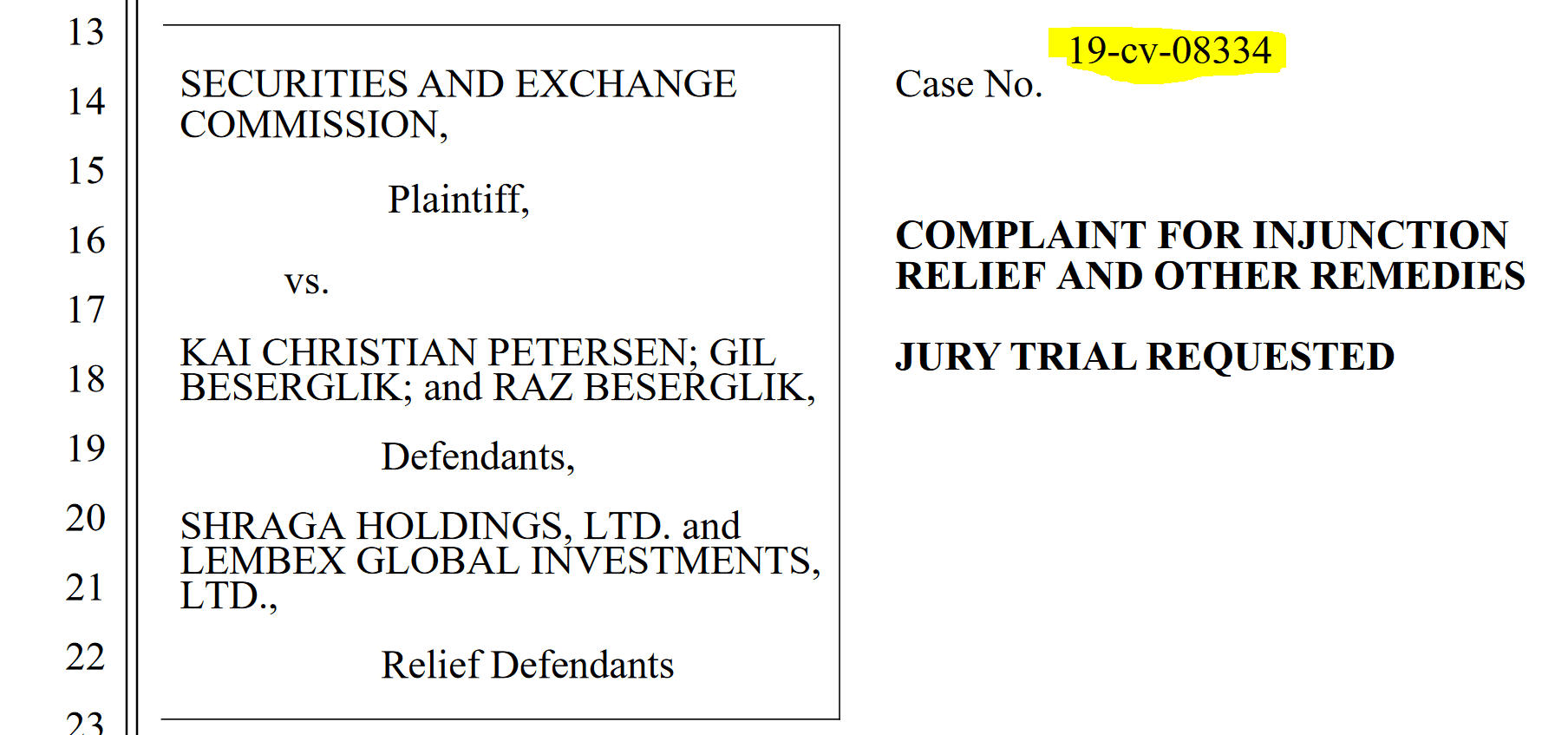The U.S. Securities and Exchange Commission (SEC) announced that three foreign individuals, Gil Beserglik (Israeli and lives in Germany), Raz Beserglik (Israeli also head of the Israeli boiler rooms), and Kai Christian Petersen (German and head of the German boiler rooms), have been charged with deceiving U.S. investors, including vulnerable retirees. According to the SEC complaint, the perpetrators caused client-victims to lose tens of millions of dollars through their fraudulent binary options scheme. SpotOption was the trading software provider, according to the complaint filed. This action reflects the SEC’s continued pursuit of those that drain the retirement accounts of vulnerable investors, including those who perpetrate their fraud from abroad,” said Melissa Hodgman from the SEC’s Enforcement Division
The defendants conned
The Traders Court of Forex Peace Army (FPA) has
According to the SEC, the schemes worked with boiler rooms in Germany and Israel. Salespeople used high-pressure sales tactics to offer and sell binary options to vulnerable investors.
Employees at these boiler rooms persuaded investors to open binary option trading accounts and deposit large sums into those accounts. As in the other fraudulent binary options schemes, boiler room agents have lied to client-victims about almost everything. They acted with fake (stage) names and lied about their trading experience. They have also lied to client-victims about the location of their activity and the place of their offices.
They falsely told their victims that the brokers only earned money if investors made money. In reality, however, the brokers earned money only from investor losses and thus had no incentive to advise investors on how to trade binary options profitably.
The complaint alleges that most investors who traded binary options in the three schemes lost money, and some individual retirees lost their entire savings amounting to hundreds of thousands of dollars. The SEC also alleges that the brokers largely refused to honor investor requests to withdraw money from their trading accounts.
